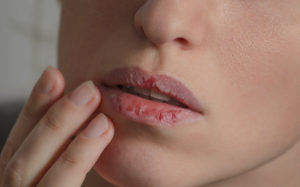What To Do With a Dry Mouth
Many people have an issue with dry mouth. Dry mouth, also known as xerostomia, is a condition in which the salivary glands do not produce enough saliva to keep your mouth wet. There are different causes of dry mouth, ranging from side effects of certain medications and disease, nerve damage to the head and neck area, dehydration, smoking or chewing tobacco, or issues with aging to radiation type of therapies for cancer patients. Saliva serves an important factor in preventing tooth decay. Saliva can neutralize acids produced by bacteria, limiting bacterial growth and washing away food particles. Saliva also enhances the ability to taste and makes it much easier to chew and swallow food. Additionally, saliva has enzymes, which aids in digestion. Dry mouth can range a mere nuisance to major impact on general and oral health. Poor nutrition can result from having problems with chewing and swallowing because of dry mouth. Dry mouth can also increase the risk of gingivitis, tooth decay, and even mouth infections, such as thrush.
Dry Mouth Symptoms
When you don’t make enough saliva, your mouth can get dry and uncomfortable. Some common symptoms of dry mouth include:
- A dry, sticky feeling in the mouth and/or throat
- Thick and stringy saliva
- Frequent thirst
- Cracked lips
- Sores in mouth or corners of the mouth
- A dry red, raw tongue or a burning sensation in the mouth and tongue
- Difficulty speaking or trouble tasting, chewing, or swallowing
- Hoarseness, dry nasal passages, sore throat
- Bad breath
- Gum irritation
Treating Dry Mouth
Addressing the underlying cause usually treats dry mouth. If it is caused by medications or disease, then switching medications or resolving the disease will help resolve dry mouth. A dentist may also recommend an oral rinse to help restore mouth moisture. If a mouthwash does not work, a medication that boosts saliva production can be prescribed. Other ways to increase saliva flow can include:
- Sucking on sugar-free candy or chewing on sugar-free gum
- Drinking plenty of water to keep mouth moist
- Brushing with a fluoride toothpaste, rinsing with a fluoride mouthwash, and visiting your dentist regularly
- Breathing through your nose
- Using a room vaporizer to add moisture in the room air
- Using an over-the-counter artificial saliva substitute
- Avoiding tobacco or alcohol that dry out the mouth
If you have noticed persistent dry mouth symptoms, make an appointment with California Dental Group by calling (800) 407-0161.





